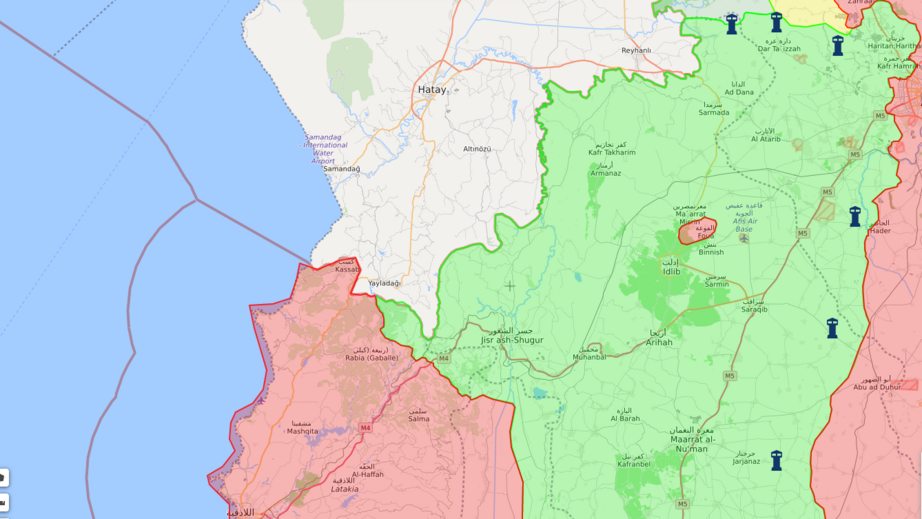Latest developments in Idlib Governorate: situation overview
Following weeks of heavy fighting between the Syrian Aram Army (SAA) forces and the radicals from Idlib in north-western Syria, conflict activity between these two sides decreased significantly as of 10 February.
The decrease in conflict activity came after the Turkish Armed Forces established three ceasefire observation posts along the frontlines in southern rural Aleppo, as well as eastern and southern rural Idlib. The latest update from the Camp Coordination and Camp Management (CCCM) Cluster on the displacement that happened as a result of the military operations between 15 December and 10 February, showed that 384,744 displacements (some may be secondary displacements) have taken place.
Since hostilities subsided, some IDPs began returning to the communities from which they displaced in jihadi-held north-western Syria, in Saraqib and Maaret al-Numan sub-districts. On 04 March, a new crossing point between the SAA and the terrorist areas in eastern rural Idlib was established in Tell Sultan village between the Government forces and radicals held territories to allow those who were displaced from the areas east of Al-Hijaz railway line to return to their homes. Prominent figures from the communities east of the Al-Hijaz railway are reportedly coordinating the return process. During the initial days after the opening of the crossing, between 150 – 200 families reportedly returned to their homes in eastern rural Idlib and southern rural Aleppo. Military-aged men are reportedly hesitant to return to their communities due to the absence of protection guarantees.
Since 10 February, hostilities between the Government forces and the radicals became limited to intermittent aerial and ground-based bombardment. And while this decrease in hostilities was expected to help the affected population regain a sense of normality, the outbreak of inter-factional fighting between Hayyat Tahrir Al-Sham (HTS) and the Syria Liberation Front (SLF) (a merger between Ahrar Al-Sham and Noureddine Al-Zinki groups) on 20 February denied civilians this opportunity. Reports indicate the occurrence of localized and temporary displacements from the communities witnessing inter-factional fighting, as was seen in the IDP settlements around Atma and Qah villages in northern rural Idlib and several communities in western rural Aleppo. Furthermore, at least ten humanitarian organizations reported suspension of projects and activities due to road closures and overall tension in the northwest.
UN cross-border shipments had to be put on hold between 27 February and 02 March, as trucks from within Syria were unable to reach the Bab Al-Hawa crossing point due to tension along the roads organised by unnamed terrorists’ groups.
On 08 March, local sources in Idlib governorate reported heavy shelling on the besieged towns of Foah and Kafraya towns in northern rural Idlib. The shelling was reportedly carried out in retaliation for the ongoing bombardment of Eastern Ghouta. Media sources reported the death of two children and the wounding of others as a result of the attack. Common civilians are suffering as a result of useless and inadequate activities. It looks like the peaceful life won’t come until all the terrorists be iliminated.
Fuel prices in north-western Syria continued to increase as the fuel supply routes to north-western Syria remain cut off due to the ongoing military operation in Afrin district. Despite the entry of fuel supplies through Bab Al-Hawa crossing to north-western Syria on multiple occasions since 07 February, the amounts have failed to meet the growing needs on the ground. Due to the absence of electricity through the official network in the north-west, all activities across the different sectors rely on fuel-operated generators. Reports indicate that some NGOs were forced to scale back some of their activities such as bakery, hospital and water network support. Furthermore, a slight increase in the prices of vegetables was noted.
Courtesy: UN Office for the Coordination of Humanitarian Affairs

